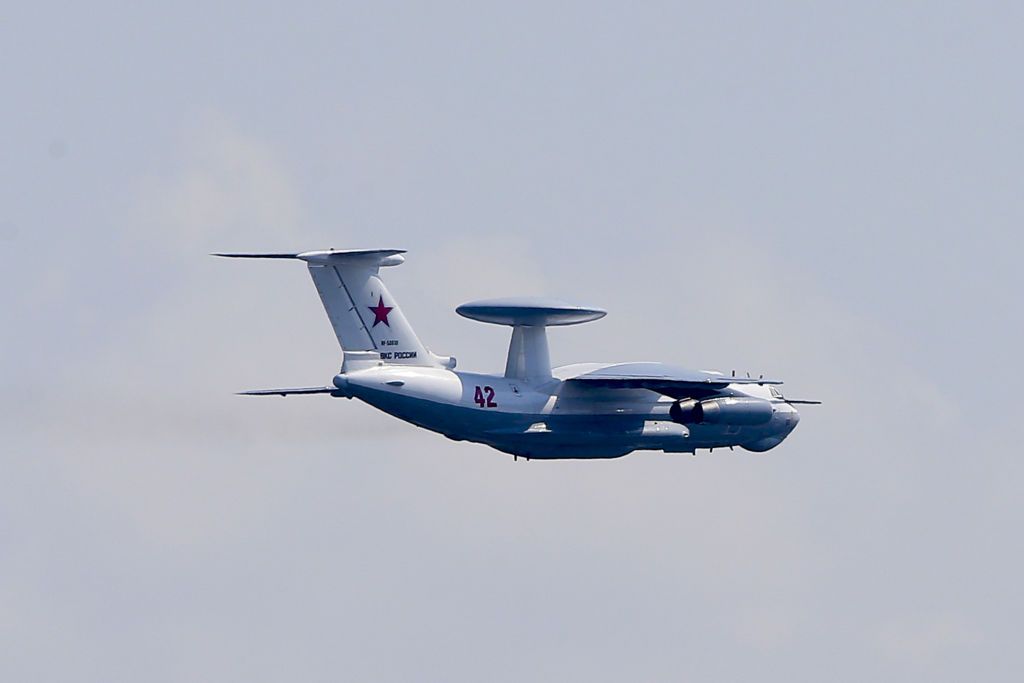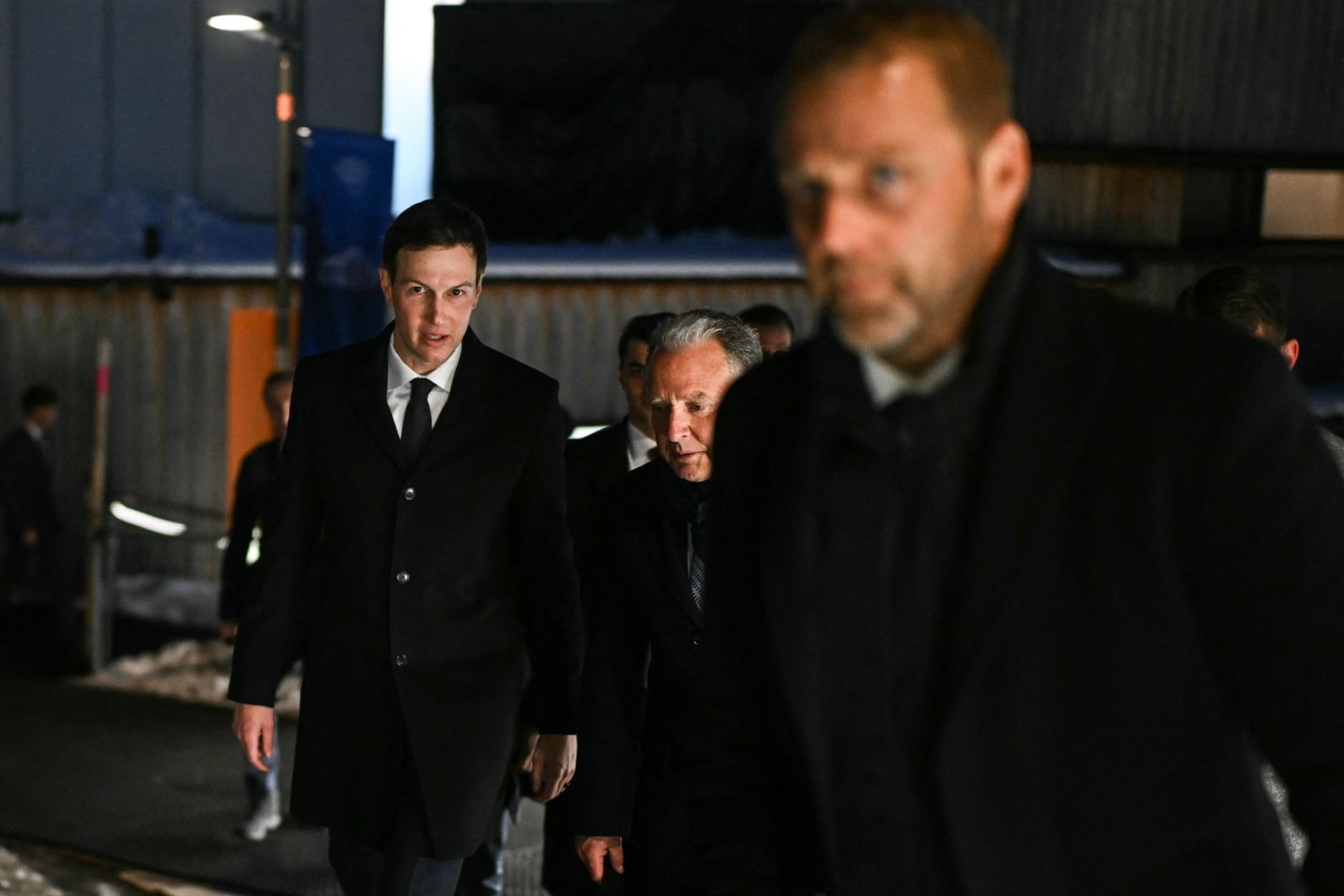‘It’s their turn now:’ Ukrainians call on government to demobilize exhausted soldiers fighting for nearly two years

Over a hundred women braved a snowstorm in early December to gather in central Kyiv’s Independence Square and call on the government to demobilize their relatives who have been on the front lines since the first days of the invasion.
Draped in Ukrainian flags, women chanted, “It’s their turn now.” Others shouted, “Soldiers are not made of iron.”
Many Ukrainian soldiers who volunteered when Russia launched its full-scale invasion in February 2022 are still on the front line, exhausted after almost two years of combat without a break.
“It's been almost two years, and the same people are in the trenches,” 29-year-old Alina, who declined to tell her last name, fearing backlash for her soldier husband, told the Kyiv Independent. “Many of them are already dead.”
Family members continuously demand soldiers be discharged. But as Russia continues to throw huge numbers of manpower into its war against Ukraine, demobilizing soldiers without a fresh mobilization drive in the country would leave Ukraine extremely vulnerable to renewed Russian offensives.
The Ukrainian government is currently debating the conditions for the next round of mobilization. Several versions of mobilization legislation are being reviewed in parliament.
Commander-in-Chief Valerii Zaluzhnyi and Defense Minister Rustem Umerov met with Ukraine's lawmakers to discuss the new legislation on Jan. 4.
The protesters all know that Ukraine must mobilize new soldiers if their family members are going to be able to come home any time soon. Currently, demobilization is only possible in case of serious injury, imperative family reasons, or if reaching the age limit for mobilization, currently set at 60 years.
“We need full demobilization for those who were there since day one,” Anastasia Bulba, a young woman holding a picture of her husband, told the Kyiv Independent.

Her 50-year-old husband took up arms at the beginning of Russia’s invasion. He is now resting in the hospital in Zaporizhzhia for 90 days to heal after a concussion, but he’ll have to get back on the battlefield soon, she said.
“He and his fellow soldiers are worn out,” Bulba said. “We can't drain the front line, but tired soldiers mean the front won’t hold.”
A few steps away, another protester held a sign reading, “Exhausted soldier = lost war.”

Exhausted soldiers
The draft law submitted by the Cabinet of Ministers in December envisaged discharging mobilized conscripts after 36 months of service unless they want to continue serving voluntarily.
Lawmakers returned the draft bill to the Cabinet for revision on Jan. 11.
Umerov said the Defense Ministry had prepared a new version of the draft law on mobilization and was ready to submit it to the government for approval. It’s unclear whether the 36-month limit remained in the new draft.
Umerov said on Jan. 11 that the new version of the draft law planned “to establish a clear term of military service” as “every soldier needs it.”
“The conscripted soldiers should finally be allowed to go home. That’s fair,” Umerov said.
Zaluzhnyi said during a press conference on Dec. 26 that the military had agreed to the 36-month limit “hoping there would be no escalations on the front line” and that there would be new people to replace the demobilized conscripts.
But three years is too long for the soldiers’ families who demand soldiers be demobilized after 18 months.
“They propose 36 months, but it’s not fair for those on the fighting line,” 38-year-old Kateryna Tsvighun told the Kyiv Independent. “It would be a death sentence for them.”
Long-time volunteer soldiers have rarely been rotated over the span of two years, Anzhelika, another protester who also declined to tell her last name, fearing backlash, told the Kyiv Independent.
Her husband, her brother, and her uncle are all fighting. They rarely have the chance to get a proper leave since they volunteered because there are not enough troops to hold the line.
“My husband got 30 days off, but in the end, he only had 15 days off because there was no one to be there instead of him,” she said.

The draft law also proposes rotating military personnel on the front line every six months, but Zaluzhnyi opposed this idea, saying that the situation on the front remains unpredictable and a rotation like that would require doubling the amount of troops.
“We cannot predict that it will be six months, five months, three months. The situation can be completely different,” he said. “And again, if people propose a six-month rotation, they should understand that the number of troops should be increased at least twice.”
Drafting more soldiers
The patriotic wave of mobilization of the invasion’s first months faltered to the point that enlistment offices have been struggling to find new volunteers.
Kateryna Tsvighun said she didn’t support forced mobilization but that young people and the government should take their part of responsibility in the country’s defense.
According to Zelensky, Ukrainian forces need up to 450,000 to 500,000 additional conscripts.
The draft law submitted to Ukraine’s parliament on Dec. 25 seeks to expand the conscription requirements, including lowering the age limit of conscripts from 27 to 25-year-old.
The draft bill also ends the service exclusion for citizens with minor disabilities, legalizes digital draft notices, and restricts the ability of draft dodgers to carry out transactions such as buying or selling property.

However, the Ukrainian parliament will not consider the government-proposed draft law on mobilization and military service in its original form, Yevheniia Kravchuk, deputy head of the governing Servant of the People faction, said on Jan. 2.
The parliament's committee on security and defense issues wanted to work on "a more accommodating option, which would allow it to be voted on in the parliament," Kravchuk said on national television.
Yet, the government must find a way to attract new volunteers without resorting to forced mobilization that could send unmotivated troops to the front, as some concerned Ukrainian soldiers posted near the front line have said.
“If combat-capable people like us run out, we could only be replaced by people who don’t know anything,” said Roman, a Kharkiv native who has been serving since 2016, told the Kyiv Independent in October.

Draft evasion
Meanwhile, some Ukrainian men keep evading mobilization, paying bribes to avoid being drafted. Falsified medical certificates can reportedly be purchased for as little as $3,000.
Under martial law, Ukrainian men between the ages of 18–60, with some exceptions, are not allowed to leave the country because they could be called up for military service.
Approximately 650,000 Ukrainian men aged 18-60 have left Ukraine for Europe since the start of Russia's illegal invasion of Ukraine in February 2022, BBC Ukraine reported on Nov. 24, citing Eurostat.
National Police have opened 9,000 criminal proceedings regarding mobilization evasion, of which 2,600 have started court proceedings, Interior Minister Ihor Klymenko said.
In August, Zelensky dismissed all officials in charge of regional military recruitment centers amid a widespread corruption scandal, vowing criminal investigations into profiteering schemes.

The state is trying to fix these problems, Zaluzhnyi said in an op-ed for the Economist, with measures including “combat internships,” where newly mobilized and trained personnel are placed in experienced front-line units to prepare them.
Soldiers’ relatives on the Maidan called out those who fled to avoid fighting.

“There are many who escape it, with bribes or corruption,” said Alina, one of the protesters whose husband is in the military. “My son goes to school, out of 24 pupils in class, men serve only in two families.”
Most protesters find it unfair that they had to sacrifice their families while young couples and men of fighting age stroll the streets of Kyiv untouched by the war.
“I understand that life should continue, and I don't wish death upon anyone,” Alina said. “But it’s time for others now, it can’t be the same men all this time.”















